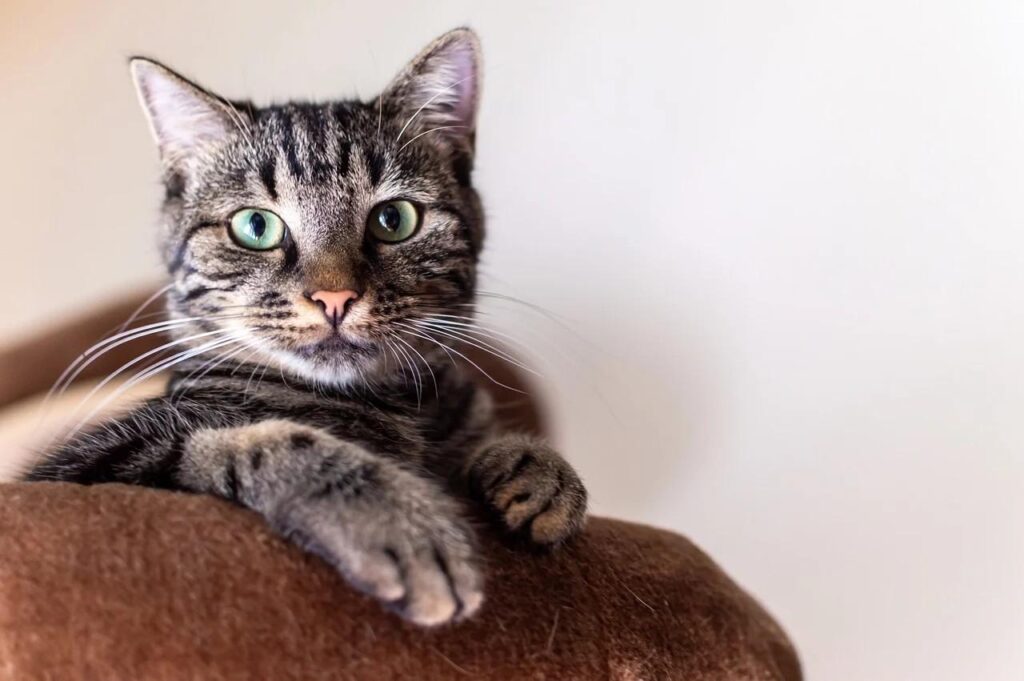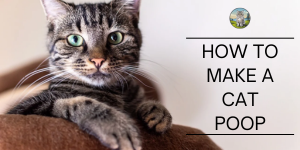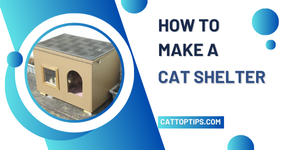Have you ever noticed your cat struggling to poop? Maybe your kitten hasn’t had a bowel movement, or your adult cat seems uncomfortable. Just like us, cats can get constipated, and it can make them feel really bad. If your cat is having trouble pooping, it’s important to help them get back to normal quickly. This guide will show you simple ways to help your cat poop and keep them healthy.
At cattoptips, we know how much you care about your cat, so let’s go over some easy steps to make sure your cat or kitten stays regular.

Why Can’t My Cat Poop?
Before we jump into solutions, it’s good to know why your cat might be constipated in the first place. Here are some common reasons cats have trouble pooping:
- Not drinking enough water: Cats often don’t drink a lot of water, which can lead to dry, hard poop.
- Low-fiber diet: Cats need some fiber in their diet to help with digestion. Without enough fiber, they can get constipated.
- Hairballs: Cats groom themselves a lot, and sometimes they swallow too much hair, which can block their digestive system.
- Not enough exercise: If your cat doesn’t move around much, it can make their digestion slower.
- Medical problems: Sometimes, health issues like obesity, kidney disease, or diabetes can cause constipation.
Now that we know why constipation happens, let’s explore how to make a cat poop when constipated.
How to Make a Cat Poop When Constipated
When your cat is constipated, you’ll want to help them feel better as soon as possible. Here are some easy tips to get them pooping again:
1. Add More Fiber to Their Diet
Fiber helps with digestion and can soften your cat’s stool, making it easier for them to poop. You can add a little canned pumpkin (make sure it’s plain pumpkin, not pumpkin pie mix) or some wet cat food that’s high in fiber. There are also special high-fiber cat foods that can help with constipation.
2. Make Sure Your Cat Drinks Enough Water
Cats often don’t drink as much water as they should, and dehydration can cause constipation. To help your cat poop, encourage them to drink more water. You can do this by providing fresh water every day, using a cat water fountain (many cats love these), or switching to wet cat food, which contains more moisture than dry food.
3. Use a Cat Laxative
There are over-the-counter laxatives made specifically for cats, like petroleum-based gels. These can help soften your cat’s stool and make it easier for them to poop. Always talk to your vet before giving your cat any medications, including laxatives, to make sure it’s safe for them.
4. Get Your Cat Moving
Exercise can really help with constipation. Encourage your cat to play and be active by using toys, laser pointers, or catnip. When your cat moves around, it helps their digestive system work better, which can help them poop more easily.
5. Give Your Cat a Belly Rub
Sometimes, massaging your cat’s belly can help stimulate their intestines and encourage them to poop. Gently rub your cat’s tummy in small circles, being careful not to press too hard. If your cat seems uncomfortable, stop right away, as they may be in pain.
How to Make a Kitten Poop
If you’re dealing with a young kitten, the situation is a bit different. Very young kittens, especially those under three weeks old, can’t poop on their own and rely on their mother to help them. Here’s how you can help a kitten poop:
1. Stimulate Their Bowel Movements
Mother cats lick their kittens’ bellies and private areas to help them poop. If you’re caring for a kitten without its mom, you can do the same thing by using a soft, warm cloth. Gently rub the kitten’s belly and bottom with the cloth after feeding. This should help the kitten go to the bathroom.
2. Keep Them Hydrated
Just like adult cats, kittens need enough fluids to poop properly. Make sure they’re drinking enough milk or formula if they’re still bottle-fed. If your kitten is old enough for solid food, offer wet food to help with hydration.
3. Feed Them the Right Food
As kittens start eating solid food, make sure they’re eating food that’s gentle on their stomachs and easy to digest. Wet food is often a good option because it contains moisture, which can help prevent constipation. If your kitten seems constipated, talk to your vet about the best food for them.
How to Make a Constipated Kitten Poop
If your kitten is constipated, don’t wait too long to help them. Kittens can get sick quickly if they can’t poop. Here are some things you can try:
- Hydration: Make sure they’re drinking enough or getting enough formula.
- Massage: Try rubbing their belly gently to get things moving.
- Call the vet: If your kitten still can’t poop after trying these steps, call your vet. They may suggest a mild stool softener that’s safe for kittens.
How to Get a Cat to Poop Regularly
Here’s how to keep your cat pooping regularly and avoid constipation in the future:
- Give them a high-fiber diet: Make sure your cat’s food has enough fiber to keep their digestion moving smoothly.
- Encourage hydration: Offer fresh water daily and consider giving your cat wet food to add moisture to their diet.
- Keep them active: Regular exercise can help your cat’s digestion work properly. Play with your cat and keep them moving.
- Tackle hairballs: Use special hairball-control foods or give your cat grooming treats to help them pass any hair they swallow.
How to Get Dried Poop Off a Cat Anus
Sometimes, when a cat is constipated, dried poop can get stuck around their anus. Here’s how you can clean it safely:
- Use a Wet Cloth: Dampen a soft cloth with warm water and gently wipe the area to remove the dried poop.
- Trim the Fur: If the poop is stuck in your cat’s fur, you can carefully trim the fur around their anus with scissors.
- Give Your Cat a Bath: If there’s a lot of poop stuck, a gentle bath with cat-safe shampoo might be the best option.
How to Make Your Cat’s Poop Less Smelly
Cat poop is never going to smell like roses, but if you want to know how to make your cat’s poop less smelly, here are some tips:
- Switch to a Better Diet: A poor-quality diet can make your cat’s poop smell worse. Try switching to a higher-quality food with better ingredients.
- Clean the Litter Box Often: Scoop the litter box at least once a day to keep smells under control.
- Use Litter Box Deodorizers: You can add cat-safe deodorizers to the litter box to help neutralize the smell.
FAQs
1. How often should a cat poop?
Most cats poop once or twice a day. If your cat hasn’t pooped in more than 48 hours, it might be constipated. Make sure they’re drinking enough water and eating a balanced diet.
2. What foods help a constipated cat?
Adding pumpkin puree, wet cat food, or high-fiber foods can help relieve constipation. These foods add moisture and fiber, which can help soften stools and make it easier for your cat to poop.
3. Can I use human laxatives for my cat?
No, never use human laxatives for cats. Always consult your vet before giving your cat any laxative, even if it’s made for cats. Your vet can recommend a safe and effective option.
4. What are the signs of constipation in cats?
Signs of constipation include straining in the litter box, hard or dry poop, reduced appetite, and discomfort. If your cat hasn’t pooped for over two days, consult your vet for advice.
5. How can I prevent my cat from getting constipated?
To prevent constipation, ensure your cat has access to fresh water, feed them a balanced diet with enough fiber, and keep them active with regular playtime to stimulate digestion.
6. What should I do if my kitten can’t poop?
For young kittens, stimulate their belly with a warm cloth after feeding. If constipation persists, ensure they’re hydrated and contact your vet for advice, as it can be a serious issue.
Conclusion
Helping your cat or kitten poop is crucial for their health and happiness. Whether you need to know how to make a cat poop when constipated, how to make a kitten poop, or how to get dried poop off your cat, the tips above will guide you. Always keep an eye on your cat’s behavior, and if constipation becomes a frequent problem, consult your vet for advice.
For more tips and advice, be sure to visit cattoptips for expert guidance on keeping your cat healthy!


